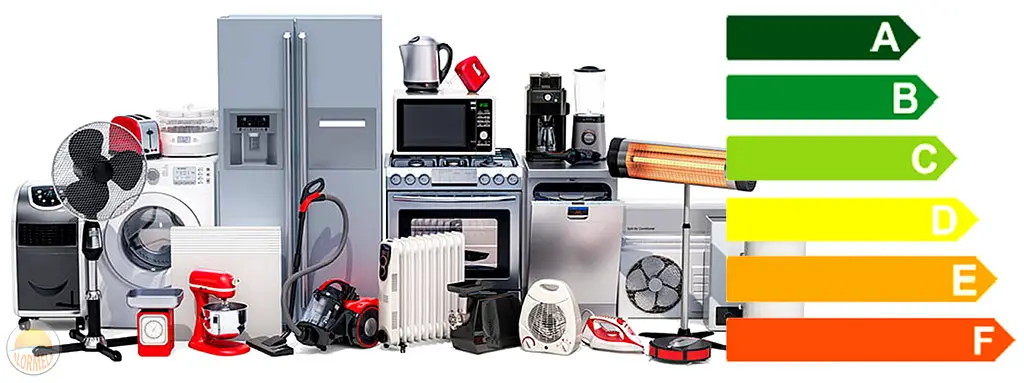In today's environmentally conscious world, energy efficiency has become a top priority for homeowners. One significant aspect of creating an eco-friendly home is investing in energy-efficient appliances. Not only do these appliances help reduce our carbon footprint, but they also contribute to significant savings on utility bills.
In this article, we will explore the benefits of efficient appliances, discuss key features to consider, and provide insights on how to choose the right ones for your home.
1. The Importance of Energy-Efficient Appliances:
1.1 Environmental Impact: Traditional appliances consume excessive energy, contributing to increased greenhouse gas emissions and environmental degradation. Energy-efficient appliances, on the other hand, use advanced technologies to minimize energy consumption, resulting in a reduced carbon footprint.
1.2 Cost Savings: Energy-efficient appliances are designed to optimize energy usage, which translates into substantial savings on your utility bills. Over time, the lower energy consumption of these appliances can offset their initial cost, making them a wise long-term investment.
2. Key Features of Efficient Appliances:
2.1 ENERGY STAR Certification: Look for appliances with the ENERGY STAR label. This certification ensures that the appliance meets strict energy efficiency standards set by the U.S. Environmental Protection Agency (EPA). ENERGY STAR appliances typically consume 10-50% less energy than their non-certified counterparts.
2.2 Energy Consumption Ratings: Consider the appliance's energy consumption ratings, such as the EnergyGuide label or the EU energy efficiency rating. These labels provide valuable information about the appliance's energy usage and allow you to compare different models to make an informed decision.
2.3 Advanced Technologies: Energy-efficient appliances often incorporate innovative technologies like inverter compressors in refrigerators or sensor-driven functions in washing machines. These features optimize energy usage by adjusting power levels based on the actual need, resulting in significant energy savings.
3. Choosing Energy-Efficient Appliances:
3.1 Research and Comparison: Before making a purchase, conduct thorough research on various appliance models and compare their energy efficiency ratings, features, and customer reviews. Websites, consumer reports, and manufacturer information can be valuable resources in this process.
3.2 Size and Capacity: Select appliances that are appropriately sized for your household's needs. Oversized appliances can lead to unnecessary energy consumption. Choose the right capacity to avoid waste while ensuring the appliance meets your requirements.
3.3 Long-Term Savings Calculation: Consider the estimated energy savings over the lifetime of the appliance. Although energy-efficient models may have a higher upfront cost, their potential for long-term savings may outweigh the initial investment.

4. Types of Efficient Appliances:
4.1 Refrigerators: Look for models with adjustable temperature controls, efficient insulation, and advanced defrost systems. Consider features like smart cooling, which optimizes energy usage based on usage patterns and temperature changes.
4.2 Washing Machines: Front-loading machines typically consume less water and energy compared to top-loading ones. Choose models with adjustable settings for different load sizes and advanced water-saving features.
4.3 Dishwashers: Select dishwashers with efficient water and energy usage. Look for models with multiple cycle options, half-load settings, and soil sensors that optimize water and energy consumption based on the load's cleanliness.
4.4 HVAC Systems: Heating, ventilation, and air conditioning (HVAC) systems are significant energy consumers. Choose high-efficiency models that meet the guidelines set by ENERGY STAR. Regular maintenance and proper insulation can also enhance their efficiency.
5. Maintenance and Care:
5.1 Regular Cleaning: Keep appliances clean and free from dust and debris. Regularly clean filters, coils, and vents to ensure optimal performance and energy efficiency.
5.2 Timely Repairs: Address any appliance issues promptly to avoid energy waste. Faulty components or inefficient operation can lead to higher energy consumption.
5.3 Longevity: Proper care and maintenance extend the lifespan of appliances, reducing the need for frequent replacements and minimizing waste.
Efficient appliances are not only environmentally friendly but also offer long-term benefits in terms of energy savings and cost reduction. By investing in energy-efficient models and adopting good maintenance practices, you can make a significant contribution to a greener future while enjoying the advantages of lower utility bills. Embrace the power of efficient appliances and take a step towards a more sustainable and energy-conscious home.

